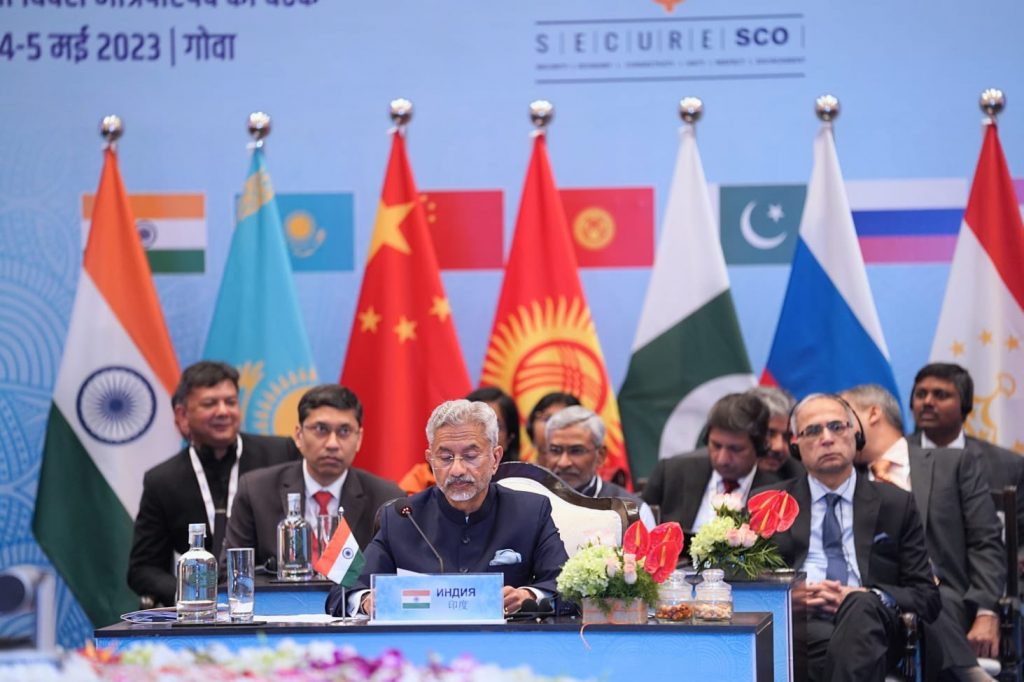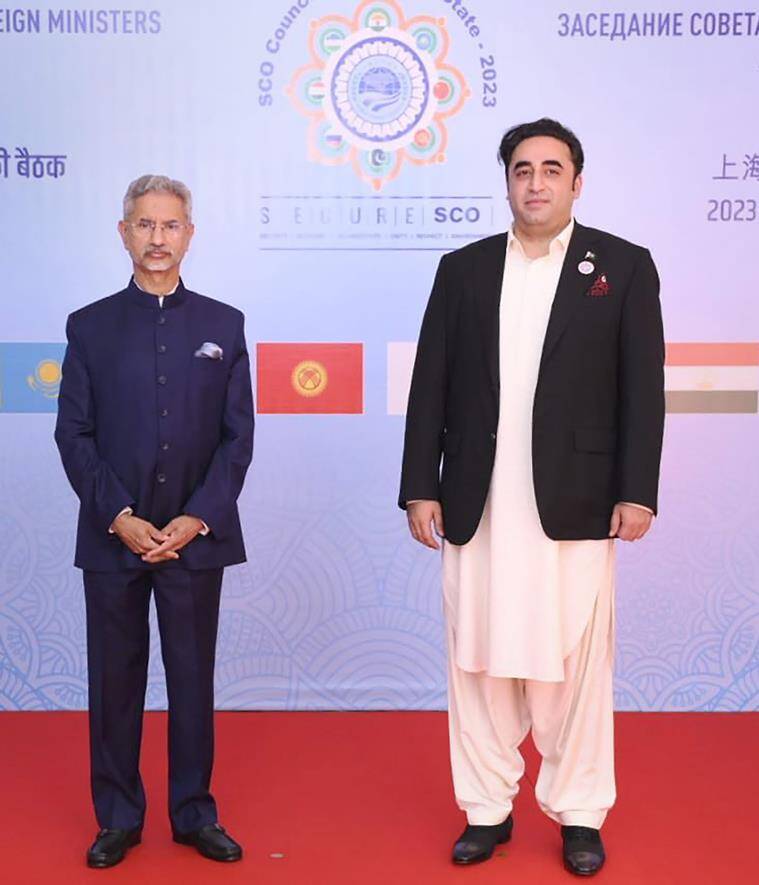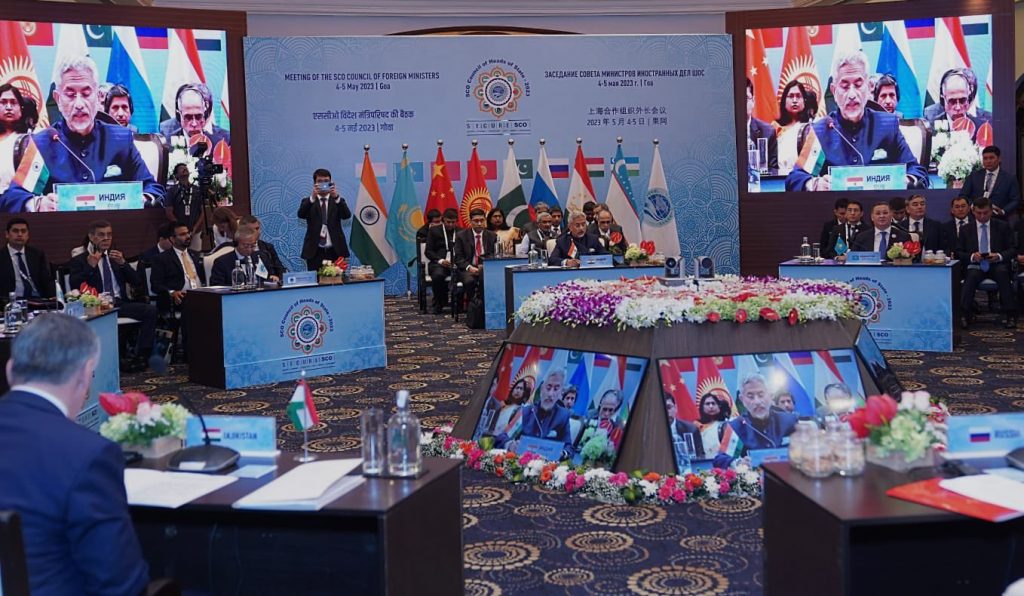
PANAJI (GOA): Combating the twin evils of terrorism and radicalisation dominated discussions at the SCO foreign ministers’ meeting, with India’s External Affairs Minister S. Jaishankar exhorting SCO countries not to take the “eyes off this menace of terrorism, which continues unabated.”
Dr Jaishankar’s remarks were aimed at Pakistan’s Foreign Minister Bilawal Bhutto-Zardari, who participated in the SCO meeting in Goa. “While the world was engaged in facing COVID and its consequences, the menace of terrorism continues unabated. Taking our eyes off this menace would be detrimental to our security interests,” Dr Jaishankar said at the opening session of the meeting of SCO foreign ministers.

“We firmly believe that there can be no justification for terrorism and it must be stopped in all its forms and manifestations, including cross-border terrorism.” He called for blocking the channel of finances for terrorist activities and underlined that “members need not be reminded that combating terrorism is one of the original mandates of the SCO.”
Predictably, Pakistan’s Foreign Minister Bhutto-Zardari reacted sharply, saying in his remarks that “let’s not get caught up in weaponising terrorism for diplomatic point scoring.” Earlier, Mr Jaishankar had welcomed Bhutto Zardari with a “namaste” greeting, along with other foreign ministers of SCO countries. As expected, there was no bilateral meeting between the two foreign ministers due to domestic political pressure and mutual antagonism.
Modernising SCO

The Indian side, however, made it clear that it does not want the SCO to get embroiled in India-Pakistan differences. In his remarks, Jaishankar also focused on major priorities of India’s G20 presidency, including start-ups, innovation, digital transformation and the reform of global governance institutions. He thanked SCO countries for supporting India’s proposal of creation of two new working groups on Startups and Innovation and on traditional medicines last year. The regulations to operationalize these working groups have been approved by Member States and will be reflected in the Delhi Declaration that will emerge from the SCO summit in New Delhi on July 3-4.
Issues relating to restoring peace and stability in Afghanistan figured in discussions. Pushing a people-centric approach, Jaishankar said: “Our immediate priorities include providing humanitarian assistance, ensuring a truly inclusive and representative government, combating terrorism and drug trafficking and preserving the rights of women, children and minorities.”
Modernisation and strengthening of SCO was also high on the agenda with a view to keeping the eight-nation organization “relevant in a rapidly transforming world.” In this regard, the SCO’s support for India’s long-standing demand to make English as the third Official language of the organization will help to enable a deeper engagement with the English-speaking Member States of the SCO and broaden SCO’s global appeal.
Author Profile

- Manish Chand is Founder and Editor-in-Chief of India Writes Network (www.indiawrites.org) and India and World, a pioneering magazine focused on international affairs. He is CEO, Centre for Global India Insights, an India-based think tank focused on global affairs.
Latest entries
 India and the WorldFebruary 17, 2026South-by-South: Focus on people-centric solutions at India AI summit
India and the WorldFebruary 17, 2026South-by-South: Focus on people-centric solutions at India AI summit India and the WorldFebruary 7, 2026Modi hails interim India-US trade deal, Goyal says no concessions made on agriculture
India and the WorldFebruary 7, 2026Modi hails interim India-US trade deal, Goyal says no concessions made on agriculture India and the WorldFebruary 2, 2026Trump announces trade deal with India, Modi ‘delighted’
India and the WorldFebruary 2, 2026Trump announces trade deal with India, Modi ‘delighted’ India and the WorldJanuary 31, 2026Palestinian minister bats for mediatory role for India in ending Gaza conflict
India and the WorldJanuary 31, 2026Palestinian minister bats for mediatory role for India in ending Gaza conflict







